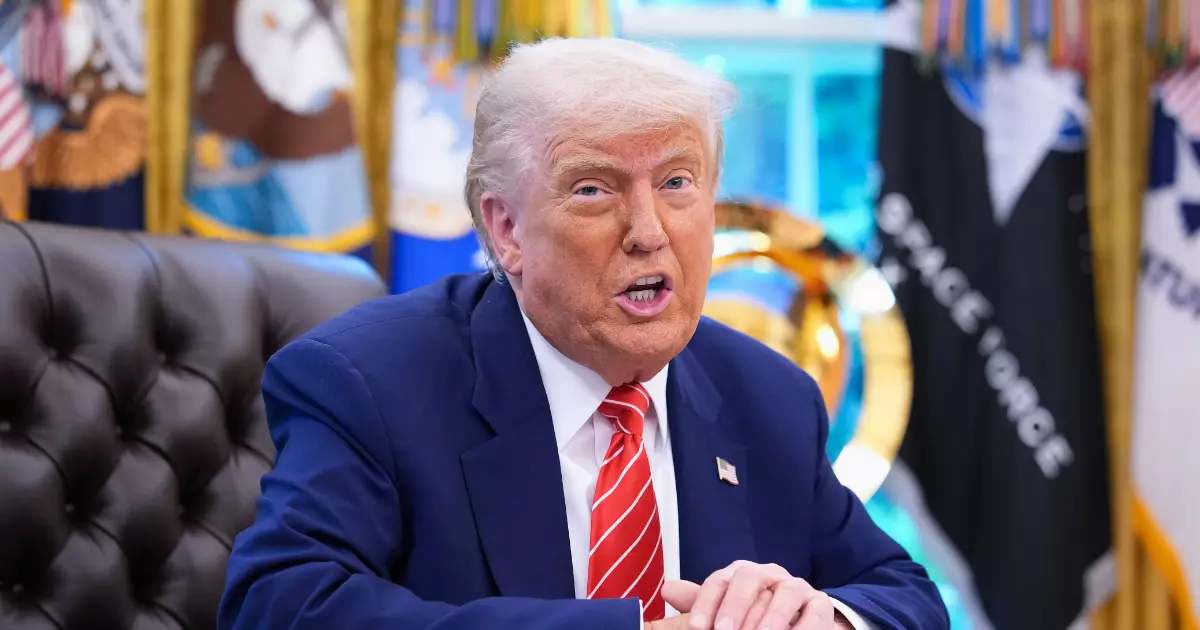



Donald Trump has signed a proclamation, which will take effect on June 9. The White House is suspending entry from 12 countries and enforcing restrictions on an additional seven. The aim is to tighten national security and address concerns about terrorism. In a video message shared on social media, Trump announced that this move is aimed at countries that lack a reliable vetting and screening protocol.
On Wednesday, May 4, the White House shared a video message from Trump. In reach of the account’s 8.7 million followers, Trump shared he’d be reinstating his travel ban policy.
In the clip, he said, “The recent terror attack in Boulder, Colorado, has underscored the extreme dangers posed to our country by the entry of foreign nationals who are not properly vetted.”
Trump proceeded by taking aim at Biden’s “open-door policies,” claiming they’ve let “millions and millions” of foreign folks into the U.S. who he says shouldn’t be in the country. Additionally, Trump doubled down as he mentioned his first-term travel restrictions, saying they stopped major terror attacks on American soil.
Furthermore, he mentioned not trying to let the U.S. turn into Europe, seemingly referring to the continent’s recent terror attacks. He explained:
”That’s why on my first day back in office, I directed the Secretary of State to perform a security review of high-risk regions and make recommendations for where restrictions should be imposed.”
On his first day back in office, Donald Trump said he had the Secretary of State do a review into “high-risk regions” to narrow down where restrictions should be imposed. Moreover, this determined which countries would be affected by his new policy. He added:
“Among the national security threats, their analysis considered are the large-scale presence of terrorists, failure to cooperate on visa security, inability to verify travelers’, inadequate record keeping of criminal histories, and persistently high rates of illegal visa overstays and other things.”
According to NBC News, Trump’s proclamation is putting a full-on ban on foreigners from Afghanistan, Burma, Chad, the Republic of the Congo, Equatorial Guinea, Eritrea, Haiti, Iran, Libya, Somalia, Sudan, and Yemen.
Furthermore, partial bans or restrictions are expected for Burundi, Cuba, Laos, Sierra Leone, Togo, Turkmenistan, and Venezuela.
In 2017, Donald Trump signed an executive order imposing a 90-day travel ban on foreigners from seven countries. Those were Iran, Yemen, Libya, Somalia, Iraq, Sudan, and Syria. Additionally, he hit pause on the entire refugee program and completely blocked Syrian refugees, all while citing national security as the reason, per TIME.
The move consequently left airports in chaos, The Guardian reported, with protests erupting and numerous legal battles ensuing. Critics called it a discriminatory move, and courts shut it down until revised versions were later passed. However, Biden scrapped the policy on his first day in office as president in 2021, stating it was contrary to America’s values.
The post Donald Trump Signs Proclamation Putting 12 Countries On Travel Ban, 7 Others Facing Restrictions appeared first on The Shade Room.

